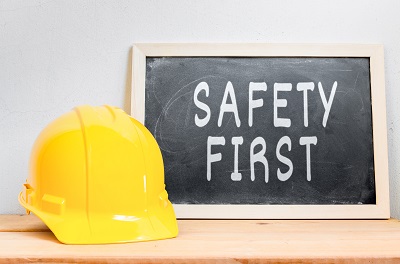Are you concerned about your clients’ safety if you make house calls to do business? Could something you do accidentally cause that person to fall and get hurt? How can you respond if this does happen? Any business owner who travels to clients’ properties to do business might accidentally cause that person to get hurt, even on their own property. The good news is that your business insurance can help you out, that is, as long as you have the appropriate coverage—liability insurance—in place. Here’s how this policy works, and how it can address your commercial needs.
might accidentally cause that person to get hurt, even on their own property. The good news is that your business insurance can help you out, that is, as long as you have the appropriate coverage—liability insurance—in place. Here’s how this policy works, and how it can address your commercial needs.
What’s Liability Insurance?
Businesses need insurance for their own assets. They get it so that they can protect the business’s solvency in case of damaging accidents. However, there’s a lot more than a fire or severe storm that might cause you to lose a lot of money. Sometimes, your mistakes might harm others, and as a result, you might have to pay for their recovery costs.
Liability insurance is the policy that will help you do that. A liability is your responsibility for something else. Therefore, liability insurance can help you pay for the harm that you accidentally cause to others.
It doesn’t matter if you could or could not have prevented this accident, or if you meant for the accident to happen (which most businesses don’t). You might still have to cover the costs of the party harmed, because your negligence, however unintentional, caused the problem.
Most business owners buy general liability insurance as a foundation to protect themselves against third-party losses. The policy can pay, rather than forcing the business owner to pay out-of-pocket for such losses. Additionally, if the person who sustained harm decides to sue the business for the losses they sustained, this coverage can also pay for the business’s legal costs and defense fees.
Bodily Injury Liability Coverage
Once you establish your general liability policy, it will usually contain a component called bodily injury liability coverage. This is the policy that will pay for the losses of a third party who sustains a physical injury as a result of the business’s mistakes.
So, suppose that you are a repairman who visits someone’s home to repair a leaking kitchen sink. During the repairs, you spill water on the floor, but don’t notice. You therefore don’t tell the homeowner, who is also home, that the leak is there.
As a result, the owner walks through the kitchen, slips in the puddle of spilt water, and falls. They sustain a severe injury that is going to cost them a lot of money in medical bills and recovery fees. Because you failed to warn the client about this leak, or because you failed to clean it up, then your negligence might have contributed to the accident. Therefore, the client might have a right to file a claim against your bodily injury liability coverage.
Other Components to Your Coverage
Besides the basic bodily injury coverage, your liability insurance might also include a couple of other components that help you cover claims arising on clients’ properties.
- Many policies include medical payments coverage. This can help you compensate someone for their injury costs regardless of whether you were actually at-fault for the other person’s injury. In some cases, letting a client file against this coverage might actually help you avoid a lawsuit.
- Policies also usually offer products and completed-operations liability coverage. So, if you make a product, or complete a project for someone else, then this coverage can apply. Should the items cause the user an injury, then coverage can help you pay.
Your general liability policy can usually cover your business activities both on and off your actual company property. Therefore, you can ensure you have coverage even when you visit other peoples’ homes.
Also Read: Liability Coverage Options Within BOPS